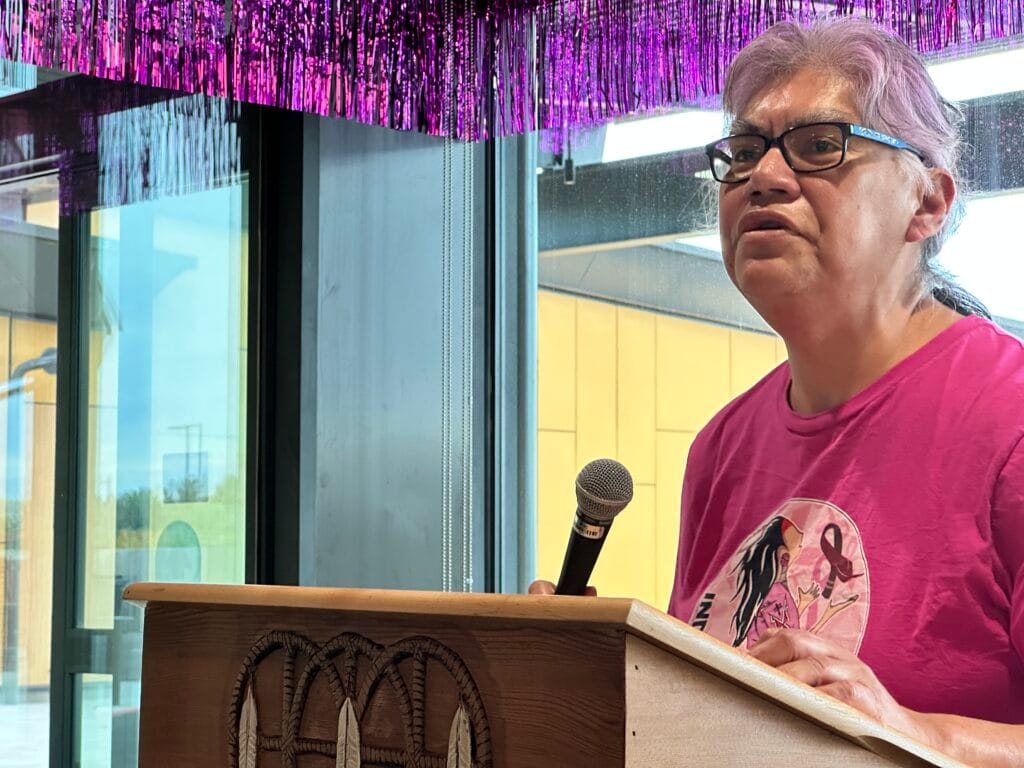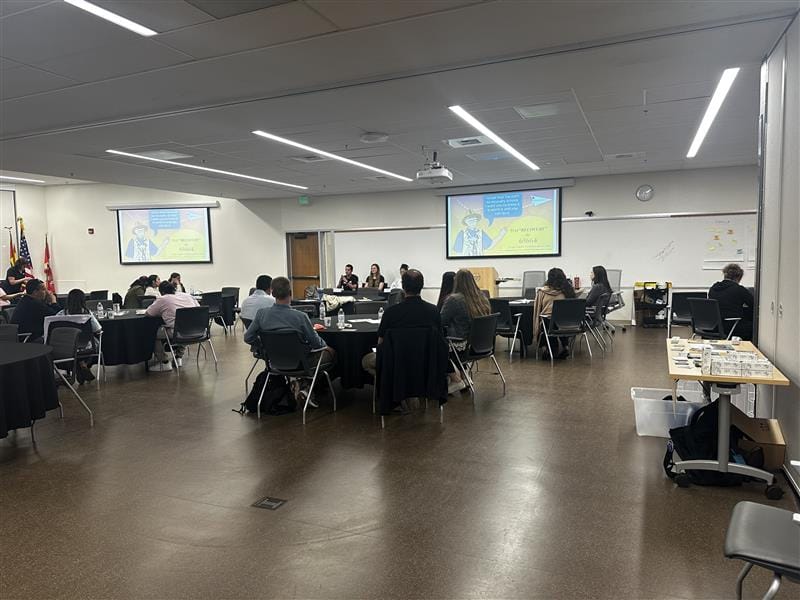21 Oct Community Collaboration Highlights Tribal Opioid Response, Health Advocacy, and Recovery Journeys
The day began with the Mammography Grand Opening, a milestone moment for the community. Karen Malcom, a breast cancer survivor and national advocate for Native women’s breast health, delivered an emotional and inspiring talk. She shared her personal journey with breast cancer, the challenges she faced, and her mission to raise awareness and improve access to early detection for Native women across the country.
“Having this new mammography machine at Yellowhawk means our women can get screened close to home, without delay,” Karen said.
Her heartfelt message resonated deeply with attendees, and her courage and advocacy were met with gratitude and admiration. The event celebrated not only the arrival of state-of-the-art screening technology but also the strength and resilience of women like Karen who continue to lead the way in health equity.
Following the grand opening, Yellowhawk hosted a community open house, where members of the public were invited to visit with staff from all departments. The event offered an opportunity to learn more about the wide range of services and programs available—from public health and dental care to youth outreach and Elder services. It was a vibrant and welcoming space that fostered connection, education, and pride in the work being done across the organization.
The evening concluded with the “Strengthening Our Community” Tribal Opioid Summit, where representatives from the Northwest Portland Area Indian Health Board’s (NPAIHB), Tribal Opioid Response (TOR) Network—Larissa Molina and Lexy Packer—delivered a compelling presentation on the opioid crisis and its impact on Tribal communities. Their discussion focused on the dangers of opioids and fentanyl, the life-saving role of Naloxone (Narcan), and the critical resources available through the TOR Network to support the nine federally recognized tribes in Oregon.
Jessica Collins, Yellowhawk Behavioral Health Chemical Dependency Prevention Coordinator, reflected on the presentation, stating, “The information shared by Larissa and Lexy was not only eye-opening but deeply necessary. Their work is saving lives, and their commitment to Tribal communities is inspiring.”
The event also featured a heartfelt panel discussion with individuals in recovery who shared their personal journeys with substance use disorder (SUD). Panelists included:
Fernando Poveda, Peer Recovery Mentor at COPES, Pendleton
Ronnie Rodriguez, Peer Recovery Mentor at COPES, Pendleton
Emma Byers, Direct Support Professional at Horizon Project Inc., Pendleton
Each panelist courageously recounted their experiences with substance use, including the factors that contributed to their addictions, such as trauma, mental health challenges, and environmental influences—and the pivotal moments that led them to seek recovery. Their stories highlighted the importance of Medically Assisted Treatment (MAT), strong support systems, spiritual connection, and service work in sustaining long-term recovery.
Cindy Cecil, Behavioral Health Clinical Director, remarked, “Hearing these stories firsthand was incredibly moving. Each person brought a unique perspective, and their resilience is a testament to the power of recovery and community support.”
The session continued with a data-driven presentation from Justin Monahan and David Barba of Nepenthe Laboratory Services, based in Eugene, Oregon. They shared current drug trend data from 2024–2025, covering regions including Oregon, Washington, Idaho, Colorado, Nevada, and Northern California. Their insights also included specific findings from Tribal communities, offering a broader understanding of the evolving landscape of substance use.
To close the event, Detective Drew Hubel of the Blue Mountain Enforcement Narcotics Team (BENT) provided a law enforcement perspective on local drug activity. He shared valuable insights into what agencies are seeing in Pendleton, Umatilla County, and the Confederated Tribes of the Umatilla Indian Reservation (CTUIR). Detective Hubel emphasized the importance of collaboration between BENT and the Umatilla Tribal Police Department in disrupting drug supply chains and improving community safety.
These events collectively underscored the power of community, the importance of access to care, and the strength found in shared stories. From cancer advocacy to addiction recovery, Yellowhawk continues to lead with compassion, innovation, and a deep commitment to the health and well-being of the people it serves.



